Viet Ville used to be home to nearly 2,000 Vietnamese refugees who sought asylum in the Philippines. Today it’s a rare stop for tourists who come to see its decaying remains—and want to sample Vietnamese food at the village’s only restaurant.
When Tran Dung Minh got into a boat off the coast of Vietnam’s Tuy Hoa province in 1985, he didn’t know his next stop would be the Philippines. But, like 400,000 other refugees, his journey across rough seas would end up at a facility in the northern island of Bataan—about 800 miles from the only home he had ever known.
Tran, now 50, has called the Philippines home ever since. After arriving at the processing center for refugees in Bataan, he moved to the Philippine First Asylum Center in Puerto Princesa, on the south-west island of Palawan. The Philippine government closed the center a decade later and tried to forcibly repatriate the three thousand refugees left in the camp. Tran and the remaining two thousand refugees who chose to stay were relocated far outside the city to a village that became known as Viet Ville. By the early 2000s, when the funding for Viet Ville dried up, the majority of the refugees migrated to America, Canada, and Australia. Tran stayed behind, married a Filipina, and they have five children together.
Today, Tran’s family is one of just five Vietnamese families living in Viet Ville. The road leading to the village is busy and packed with resorts and commercial establishments. At the port a mile away, tourists flock to charter boats that sail to the overcrowded white sandy beaches of Honda Bay and the popular Puerto Princesa Underground River.
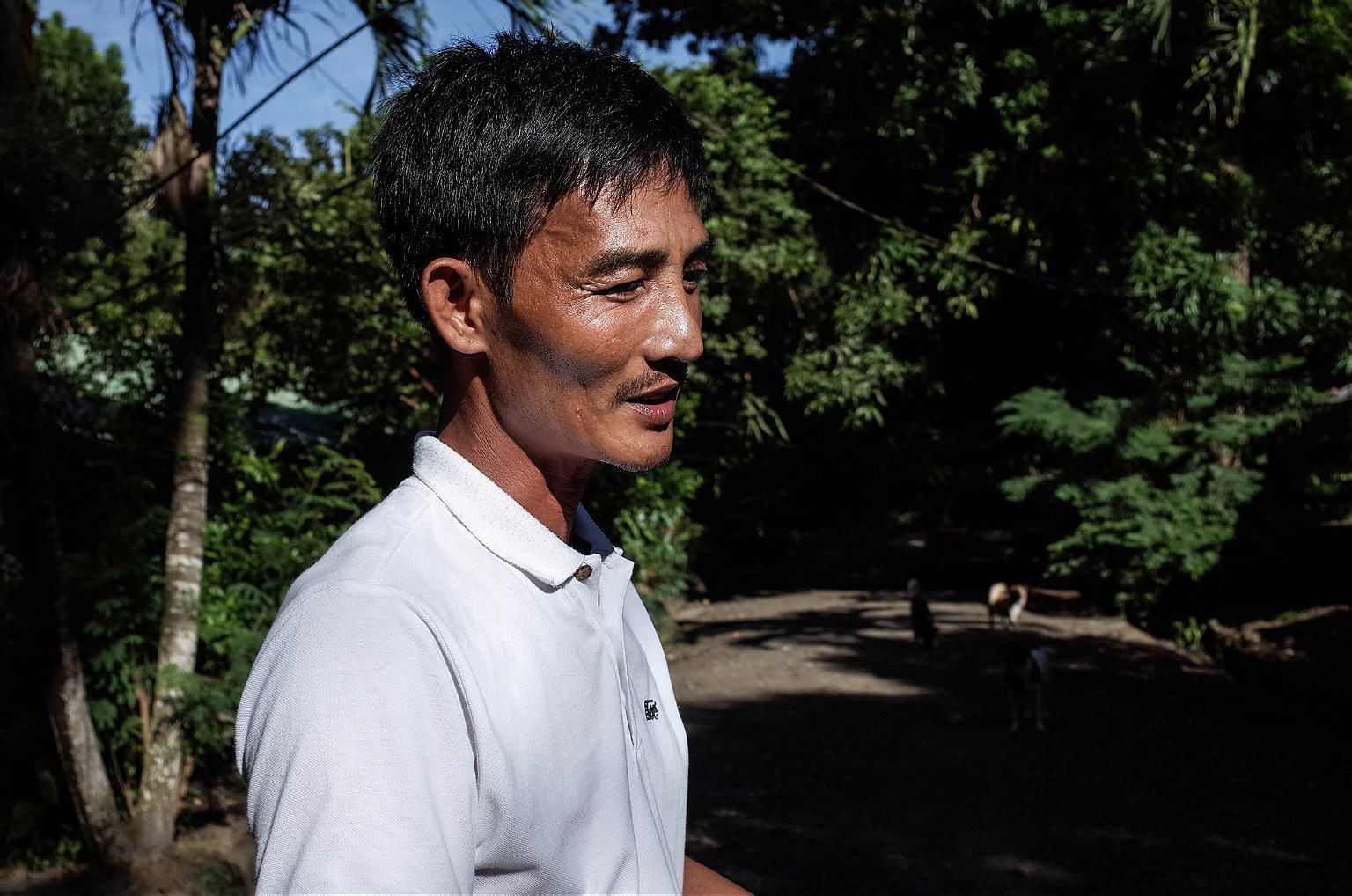
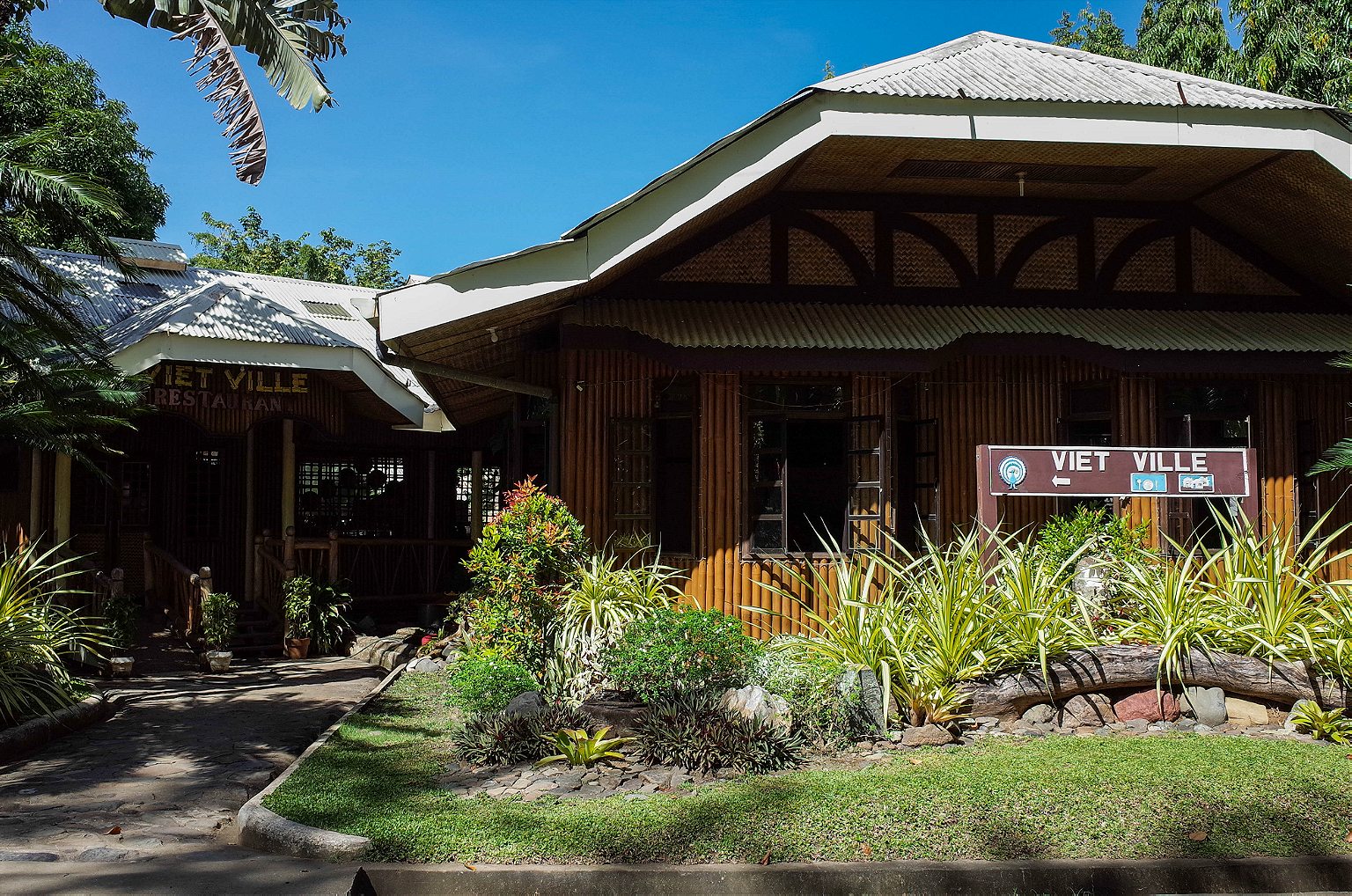
Tran’s modest wooden house with a tin roof is a stark contrast to the abandoned shacks across their yard, where the trees have grown through walls and grass has encroached onto pathways. Though the land is still under the protection of the Catholic Church, Viet Ville’s bungalows have decayed after more than a decade of neglect. Like Tran, some of his neighbors also married locals, but many of those moved to the city where they run restaurants to cater to the tourists on the island.
Viet Ville, in its early days, was a 13-hectare village with nearly 200 cottages for the families, a chapel, a Buddhist pagoda, a vast children’s playground, and a restaurant. Today, the only sign of life in Viet Ville flickers from the small restaurant that bears the village’s name. Tourists, as well as locals from Palawan, still come here for its spring rolls and rice noodles. The restaurant, originally established as a joint cooperative between Filipinos and Vietnamese refugee families, is now run by Filipinos with strong connections to the church and local government.
“They brought two elderly Vietnamese ladies to cook for the restaurant,” Tran says. “They were sponsored by their Filipino husbands—they are not refugees. There is no love in that broth.”
The quaint restaurant is filled with kitschy Vietnamese decor and instruments, while the thatched roof and bamboo walls are musty. The pho lacks the depth of flavor you would expect from slow cooking. The broth is not as sweet as the chao long—the Filipino interpretation of pho—served on the streets of Puerto Princesa. But the banh mi baguettes and shrimp rolls are well worth the trip.
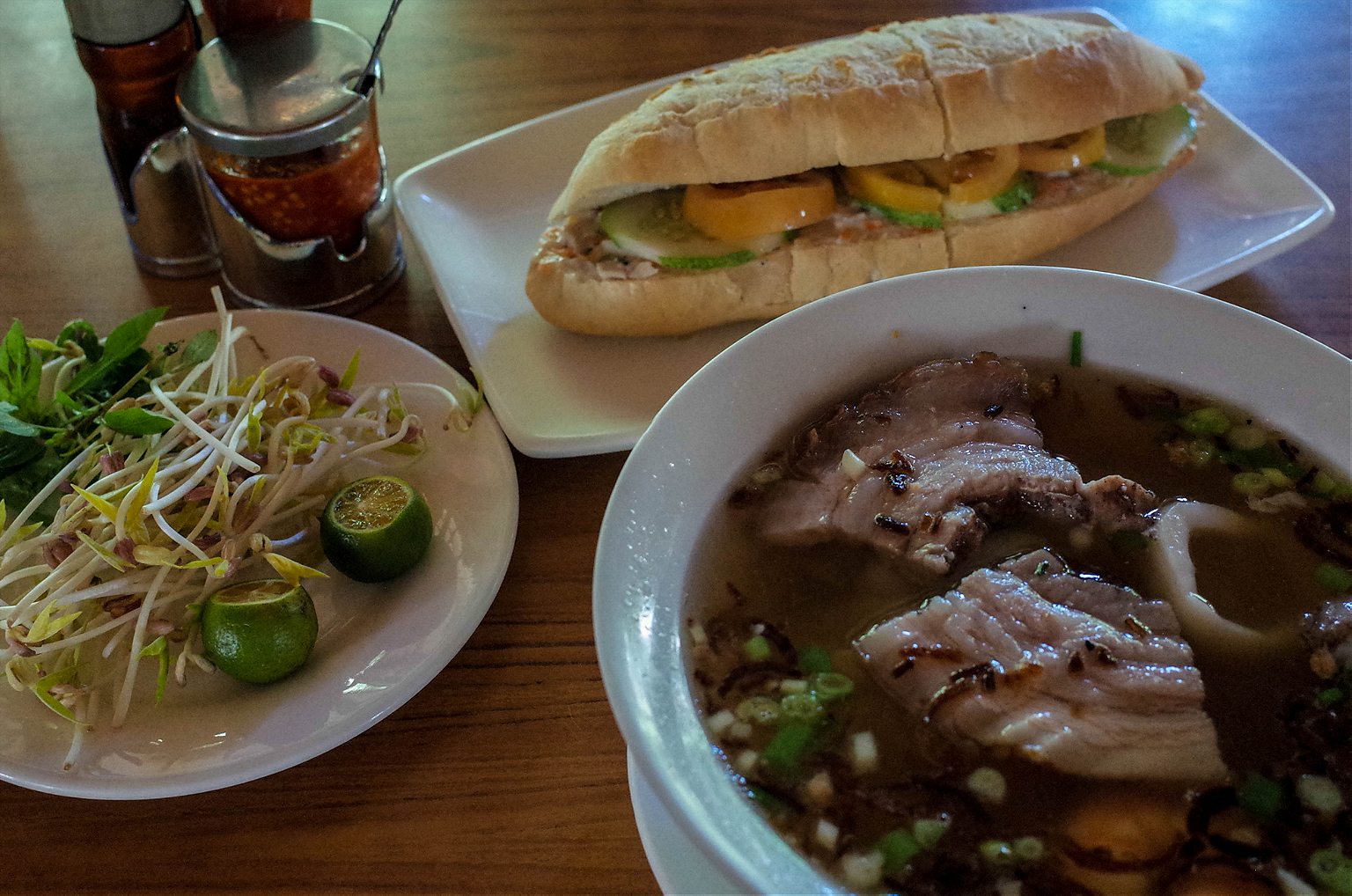
Tran and his neighbors worked at the Viet Ville restaurant, they resigned in 2015 to prevent friction with the new manager and Vietnamese cooks hired by the Filipino owners. Tran says he feels betrayed because the restaurant was meant to be a cooperative.
“The tourists who dine there have no clue,” he says.
Many tourists may also never know what Viet Ville was like before it became a ghost town. In its prime, the village had its French bakery, as well as noodle and fish sauce manufacturing plants.
“Viet Ville was full of life back in the day,” says Peregrino Fedillaga Jr., a Filipino man who has worked with refugees for nearly 40 years. Once a bookkeeper for the local village bishop, he now works as the restaurant’s gopher and sweeper.
“The sisters made sure we all got along,” Fedillaga Jr. says, referring to Sister Pascale Le Thi Triu of the Daughters of Charity of St. Vincent de Paul, which provided social services and legal support to Vietnamese refugees in Palawan for 25 years. The charity helped resolve local disputes between Vietnamese and Filipinos and counseled on intermarriage. The group also collaborated with local government and church officials to offer vocational training to the displaced women and children. Volunteers taught basic life skills to refugees of all ages, so they could seek employment in whichever country they would eventually move to. “I miss them,” Fedillaga Jr. says.
Tran’s neighbors, Nguyen Dinh Nhan and Pham Thanh Van, also arrived in the Philippines at the same time as him—and worked at the Viet Ville restaurant. Nguyen used to work at the now-defunct noodle manufacturing plant in the village. These days he looks after the temple with Fedillaga Jr. Pham, like Tran, also has a Filipino family. He now owns a chao long shop in the city, so he spends most of his time outside of Viet Ville.
The men gather around a table and talk about the old days they spent working at the restaurant. They laugh over a meal of charred lemongrass chicken—and then decide to order some dishes from the Viet Ville restaurant to sample the cooking. They glug their way through a liter of cheap brandy and shake their heads as they argue about the way the dishes should have been cooked.
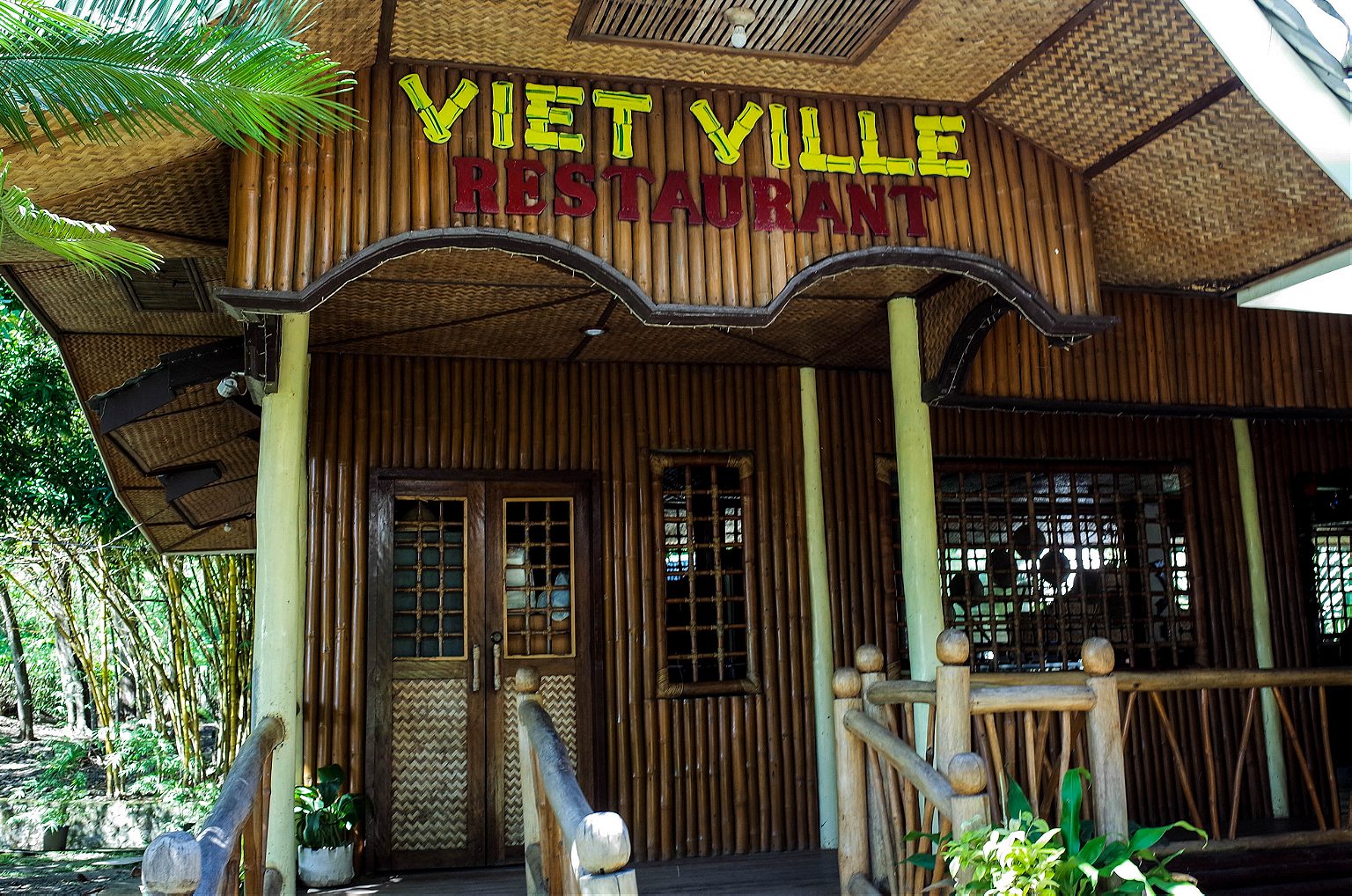
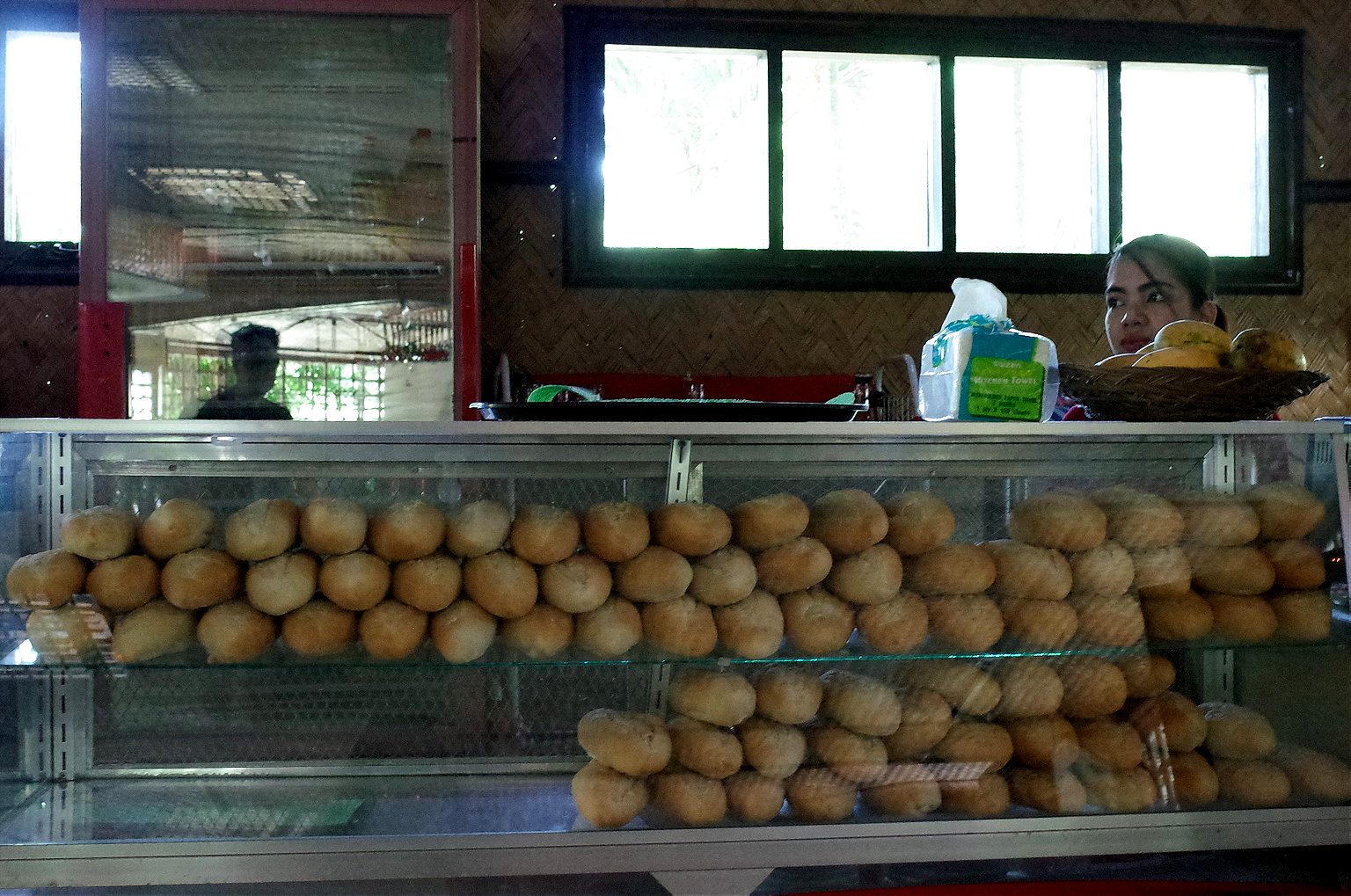
In recent years, Tran has been earning his living as an interpreter—he is fluent in Vietnamese and Tagalog—for Vietnamese fishermen who have been jailed for illegal fishing in Philippine waters. There are currently ten fishermen detained in El Nido on Palawan island and five further north on the island of Zambales. Some of the jailed men arrived by accident due to bad weather, while others were arrested catching sea turtles and sharks to sell to restaurants across Asia.
Tran is familiar with Philippine politics and bureaucracy. He says he does his best to make sure the jailed fishermen receive a fair trial. The Vietnamese embassy in the Philippines reimburses him with a small stipend for his translation work.
Tran says he knows his future in Viet Ville is uncertain. Together with the four remaining families, he says he will stay until he is legally required to move. But, time may be running out—the land occupied by Viet Ville is prime real estate and desired by investors.
“I don’t see myself ever leaving the Philippines,” Tran says. “The boatmen need my help. Like them, we all take risks to survive.”